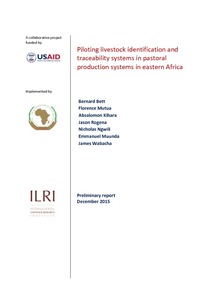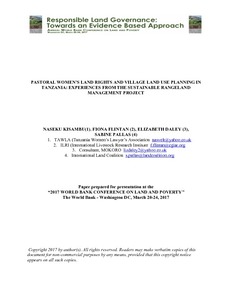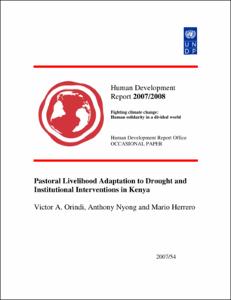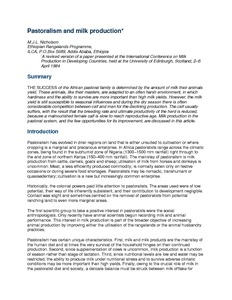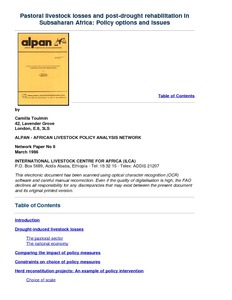Pastoral women’s land rights and village land use planning in Tanzania: Experiences from the sustainable rangeland management project
In pastoral societies women face many challenges. Some describe these as a ‘double burden’ – that is, as pastoralists and as women. However, pastoral women may obtain a significant degree of protection from customary law even if customary institutions are male-dominated. In periods of change (economic, social, political), this protection may be lost, and without protection from statutory laws, women are in danger of “falling between two stools” (Adoko and Levine 2009).
Pastoralists preferences for cattle traits: Letting them be heard
This paper investigates preferences for cattle traits among a pastoral community in a trypanosomosis prevalent area in Kenya. Choice experiments and mixed logit models are employed to estimate economic values of preferred traits which could be introduced through systematic breeding in breed improvement programs that utilise trypanotolerance trait. The findings suggest preference for traits linked to drought tolerance, high live weight, trypanotolerance and fecundity.
Pastoral issues must be part of ILRI’s research agenda into the future
Ian Scoones, Science Adviser to ILRI reflects on the recent conference on the future of pastoralism and the work of ILRI in this area. He argues that pastoralism ‘must be part of ILRI’s research agenda into the future.” He identifies two promising areas: First, to engage in technical research on production issues in pastoral areas and pastoral systems - to sustain the enormous economic potential of such areas. Second, to support the broader area of innovation.
Pastoralism 'alive and well' in Africa
Ian Scoones from the Institute of Development Studies and the Future Agricultures Consortium reflects on some key issues emerging from a recent conference on the future of pastoralism in Africa. His overwhelming conclusion: Pastoralism is "alive and well" in some parts of the continent. But there are downsides: constraints caused by pressures on land, as well as recurring conflicts. This leads to a division between those who are "really making it" and those who are "really struggling." This poses major policy issues at the two ends of these extremes.
Pastoralists’ perception of the impact of East Coast fever on cattle production under extensive management in Northern Rift Valley, Kenya
A study using participatory epidemiology (PE) methodologies was conducted in West Pokot and Baringo districts, Northern Rift Valley, Kenya to assess the status of East Coast Fever (ECF) and obtain livestock keepers’ perceptions of how the disease impacts on their livelihoods. A total of 658 livestock keepers comprising of 480 men and 178 women were invited to participate in community meetings held in twenty two purposively selected locations each in West Pokot and Baringo.
Pastoral livelihood adaptation to drought and institutional interventions in Kenya
Pastoralist futures in Africa a balance between traditions and opportunities
ILRI's Augustine Ayantunde reflects on the recent conference in Addis Ababa on the future of pastoralism in Africa. He draws attention to the two major conference strands - on one side, the optimists, on the other 'doom and gloom.' One thing is clear, it is not really possible to generalise across regions. He concludes by suggesting that the future will lie in pastoralist communities being able to take advantage of present opportunities while also taking care of their traditions.
Pastoralism and milk production
Presents a general description of pastoralist milk production from cattle in Africa, analyzing data on milk yield & offtake, lactation and milk composition under pastoralist conditions; briefly examines the use of milk from camels and smallstock by pastoralsits to complement their milk supply from cattle.
Patterns of diffusion of an institutional innovation in pastoral areas of Ethiopia. The community based animal health worker and its geographical and social spread in Afar region
Pastoral livestock losses and post-drought rehabilitation in subsaharan Africa: Policy options and issues
This paper examines post-drought rehabilitation policies to aid recovery in pastoral livestock production in Africa. It starts by describing the main impact of drought on livestock production and the sequences of this for the national economy. It considers the range of policy options open to governments and development agencies in this area and the problems associated with each one. It then examines the provision of credit to herders to aid in the reconstitution of livestock holdings, and associates the particular issues with the implementation of such projects.

